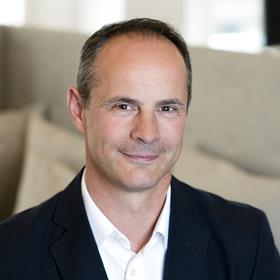After two years of unprecedented challenges faced by real estate, experts share their predictions for 2022.

Richard Ward
Head of research, StuRents
Inflationary pressures and disruptions to both supply chains and available labour will continue to affect the delivery of new student accommodation. As a result, some developments will not be completed on time, affecting supply growth in certain areas of the country.
Increases in energy prices will also be felt across the sector. Student accommodation providers offering tenants all-inclusive tenancy agreements could become exposed to far higher costs unless their risk is adequately hedged. The new Covid variant is also a concern for the sector, given its reliance on international students; however, we hope an efficient booster vaccine rollout will help avoid unnecessary travel restrictions.
We’re cautiously optimistic for PBSA and expect the HMO market to continue to perform well, given its largely domestic audience.

Scott Tyler
Senior partner, Allsop
I’m certain that the boom in industrial and life sciences will continue. Omicron might make the coming weeks or even months challenging – and I very much hope the impact is limited – but there is a lot to look forward to.
The past two years have been all about life sciences and industrial, and this will undoubtedly continue, but I’d also watch out for retail: there was a lot of demand for retail warehousing in 2021 and I can see this continuing in 2022. The market adores big boxes. I also think we’ll see shopping centres and town centre retail go up the investment wish list as these give private equity opportunities for repurposing and mixed-use redevelopment. I expect 2022 to push the likely investment volumes of 2021 (at circa £60bn) very hard.

Jessica Berney
Fund manager, Schroder UK Real Estate Fund
ESG continues to be at the forefront of many investors’ and occupiers’ minds when selecting assets to invest in or to lease. As a result, more direct building upgrades will be demanded, including air quality control systems, cycle storage and electric vehicle charging points. We have already taken major steps to upgrade the environmental credentials of our assets by installing bike storage and changing facilities, as well as designing an all-electric energy strategy, rainwater harvesting and a high-performance facade for 2 Ruskin Square in Croydon.
Sustainability is an integrated element of our investment approach and it will continue to be at the forefront of our activity for years to come to ensure that our assets are well positioned for the future, as both government regulation and tenant requirements evolve.
We look forward to continuing our hard work on the fund throughout 2022 as we seek further opportunities to increase returns for our investors, while enhancing our assets to provide best-in-class facilities where businesses can succeed.

Nick Moldon
Senior vice-president and head of UK and Germany, Pembroke
The way occupiers use space continues to evolve to accommodate flexible working and this year, we expect the real estate sector to focus on staying connected with its customers. Never has it been more important to invest in strong relationships with occupiers to support them in attracting staff back to the office by providing safe, collaborative and stimulating places to work. Our experience in key urban locations across the globe proves there continues to be appetite for sustainable, healthy buildings that offer high-spec offices with flexible floorplates, particularly when designed around the health and wellbeing of the urban workforce.
Quality, well-considered amenity provision, offering collaboration spaces, such as cafés, business lounges, gardens and outdoor terraces, as well as smart-enabled buildings, puts more control in occupiers’ hands. This allows employers to design workspaces for enhanced productivity and better employee engagement, at a time when these considerations are most critical to business success.

Christine Grace
Leasing director, Realm
If 2020 was an annus horribilis, 2021 was the year in which we learned what the public really wanted from bricks-and-mortar shopping. We are social creatures and Covid-19 trapped everyone in a world apart from each other. For many, the opportunity to enjoy shopping, connect with others, meet and share provided an immediate lure to return to the shops as soon as we were allowed. For others, there was certainly a focus on rebuilding confidence.
For 2022, the focus must remain on driving performance, further engaging with consumers and being well placed to agree flexible and attractive lease terms as the occupational market continues to recover. For traditional landlords without the active, hands-on management now required, the business structure and resources are not in place and they may find the nimble approach harder to implement in practice.
Kelsie Learney
Councillor, Winchester City Council
In common with many towns and cities across the UK with strong heritage offers, Winchester has the opportunity to reinvent itself as a place that will attract investors and adapt for the 21st century, while further developing an already vibrant cultural offering. This is a key issue many towns and cities will seek to address in 2022.
We are broadly prosperous, with established, international visitor attractions. We have a town centre with the potential to accommodate a wider-ranging retail offer not so heavily reliant on car-borne shoppers. In addition, building on our strong university and further education offering, we are looking at ways of supporting younger people and encouraging them to stay in the city despite high house prices and a shortage of appropriate homes.
There will always be people who are reluctant to embrace change in a city where they feel comfortable with the status quo. But our aim for 2022 is to demonstrate how we can diversify – albeit sympathetically – beyond heritage and tourism and position Winchester as a serious player to the investment community.
Merrik Baggallay
Principal, BentallGreenOak
The industry has finally had its rude awakening to the climate crisis. Aligning assets to deliver not just positive environmental but also beneficial social outcomes is a must to attract occupiers.
This is the year when the industry must embrace radical change to our two biggest polluters, concrete and steel. At 105 Victoria Street, the UK’s largest 100% electric net zero office, we will deploy new innovations in ultra-low-carbon construction to ensure the overall whole-life carbon will be offset within six years of the new building’s operation in comparison to retention of the existing building.
The debate around retrofit versus new build will run on, correctly encouraging construction- focused carbon investigations, but these generally fail to consider operational and reuse. Refurb is not the only way. At Welput, the largest specialist central London office fund managed by BentallGreenOak, we will continue to champion a whole-life approach to carbon.

Vicky Cotton
ESG director, Workman
In 2022, consultants, advisers, contractors – real estate’s entire supply chain – will drive ESG measures to deliver the transformational change required through practical, meaningful action.
In the wake of COP26, investors are scrutinising their approaches to weed out greenwashing in favour of measurably mitigating operational carbon. We’re focused on demystifying the route to tangible carbon reduction – from the simple switch to LED lights saving up to 70% energy use, to expanding biodiversity in urban spaces to encourage natural habitats, improve air quality, create community space and, importantly, absorb carbon.
In tackling embedded carbon, particularly in existing buildings, the industry urgently needs to understand what net zero means in practice and focus on driving down energy demand and increasing onsite renewables. Energy modelling and whole-life carbon are critical tools in refurbishment and development to drive performance from project brief to delivery.
This must also be the year when we break the barrier between landlord and occupier data, harnessing intelligent building technology – the only way to hit true net zero will be by using whole-building data and performance.
Continue to part 50 here
Predictions for 2022: Brace yourself…
- 1
- 2
- 3
 Currently reading
Currently readingPredictions for 2022: Brace yourself (part forty-nine)
- 4
- 5
- 6
- 7
- 8
- 9
- 10
- 11
- 12
- 13
- 14
- 15
- 16
- 17
- 18
- 19
- 20
- 21
- 22
- 23
- 24
- 25
- 26
- 27
- 28
- 29
- 30
- 31
- 32
- 33
- 34
- 35
- 36
- 37
- 38
- 39
- 40
- 41
- 42
- 43
- 44
- 45
- 46
- 47
- 48
- 49
- 50
- 51
- 52
- 53


















































































No comments yet